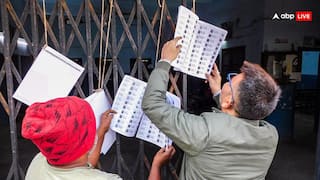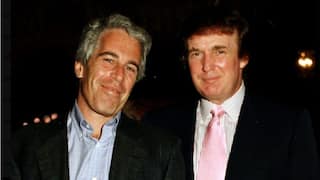Twitter Takeover: How Tender Offer, Or Exchange Offer, Did The Trick For Elon Musk

Twitter did not intend to accept the hostile takeover bid by Elon Musk that easily. But Musk had come prepared with his strategy, which did the trick for the charismatic entrepreneur.
What option did Twitter have and how that was blunted out by Musk is an interesting corporate strategy to know.
It is known to everyone interested in this Twitter-Musk saga that a takeover bid by a person or individual requires him to go public with the announcement of acquisition of equity shares or voting rights if it crosses a certain threshold. Musk followed this rule and announced his acquisition of 9% of equity shares of Twitter.
Thereafter, he was offered a seat in Twitter Inc’s Board of Directors, a top body for corporate governance that takes decisions about the policies and functioning of a corporation.
Musk was in no mood to find himself in trouble with the classic principal/agent problem of company law for a public company. He wanted his decision to be final and non-debatable, ironically in order to encourage the cause of “free speech” that he champions.
So, why did he decide to take Twitter private? It’s an interesting question that needs an answer.
Shareholding of Twitter prior to acquisition by Musk
The present structure as it appears from newspaper reports is that Musk is going to be 100 per cent shareholder of Twitter Inc. Just before the acquisition, 77.91% of the outstanding equity was held by institutional shareholders, and 12.48% by individual shareholders. Of this 77.91% shareholding by institutional shareholders, 40.98% equity was held by mutual fund holding institutions such as Vanguard Mid Cap and Morgan Stanley Institutional etc, and 36.93% shares were held by other institutional stakeholders such as Morgan Stanley Investment Management, BlackRock Fund, Aristotle Capital Management etc.
Company Law of USA
The law of corporation or company law in the USA is not the same as in India. In India, company is subject matter of List I of the Seventh Schedule (item 43, 44 and 86), Constitution of India. But in the USA, ‘Company Law’ is not the subject matter over which Congress has jurisdiction, rather it is the States who have the power to make laws regarding the incorporation, winding up or regulation thereof. Thus, different states may have different laws of incorporation. Nevertheless, regulation of trading securities is done under Securities and Exchange Commission (SEC) Act, 1934, an enactment of the US Congress. The counterpart of SEC in India is the Securities Exchange Board of India, or SEBI.
Why make Twitter a private company — an issue of corporate governance
The sole purpose of Musk’s desire to take Twitter private was to have absolute control over the company’s policies and implementation. The fundamental rule of a public limited company is that it must have a certain number of minimum shareholders. Thus, a company whose 100 per cent shares are held by one individual cannot remain a public company.
Another fundamental rule of a capital market in the form of a stock exchange is that no private company can trade its share at any stock exchange because there is a cap on the maximum number of shareholders that are possible in a private company.
Like every corporation, trading corporations (companies) also need governance that include decision making, policy formulation etc. Corporate governance of publicly traded companies becomes difficult because of the structure of corporate governance. This structural problem is often represented as principal/agent problem. ‘Principal’ here is shareholders and ‘agent’ is management of the company. It is not necessary that the interest of the principal always coincides with the interest of the agent. The publicly traded companies (i.e. listed companies) especially face the principal/agent problem as it emerges because of the dispersed shareholding which creates a conflict of interest between management (agent) and principal (shareholder).
Management is required to take expert decisions on a subject matter that is less known to shareholders. As explained by OECD study on the Board of Directors, “No matter what the formal governance rights of the shareholders may be, their collective action problems may make it in practice impossible or very difficult for the shareholders to exercise effective control over the management of the company.”
Musk was aware of this problem that he would face while introducing his ideas to the Twitter board for its implementation. He would not have been in a position to exercise complete control over the management of Twitter. Therefore, he decided to take it private.
Musk came prepared
Musk gave no choice to Twitter board to thwart his hostile takeover bid as he came prepared for a possible poison pill resort by the latter. A poison pill resort is a corporate strategy applied by the target company to avoid a hostile takeover.
As a strategy of poison pill, the current shareholders of the target company exercise their right to purchase additional shares at an extremely discounted price. In other words, existing shareholders could have soaked all the trading shares at a price much at a lower value since it is their right. Nevertheless, the counter strategy of the poison pill is a tender-offer strategy. A tender-offer strategy is also known as exchange-offer strategy. This strategy involves bypassing the management of the target company and by directly contacting the shareholders and offering them a premium price for their shares.
As reported by the news media, Musk already informed the Twitter board that in the event of their refusal he would go for a tender-offer strategy. It is also reported that many stockholders of Twitter were more than happy to receive a premium price of $54 each for their existing shares, and hence they persuaded the board not to decline the offer extended by Musk.
The Twitter board caved in, and the company is now owned by one man, one individual.
All non-democratic means were employed to save democracy that Musk claimed was being “undermined” by Twitter. Democracy (voting rights of shareholders) was subverted by buying the voting rights directly or through shares to save democracy. Nevertheless, Musk showed how the power of one individual could take on a mighty corporation that was able to bring sovereign governments to their knees.
Let’s see what unfolds now.
The author is a PhD fellow at Hamburg University. He has written two books on financial laws.
[Disclaimer: The opinions, beliefs, and views expressed by the various authors and forum participants on this website are personal and do not reflect the opinions, beliefs, and views of ABP News Network Pvt Ltd.]


























